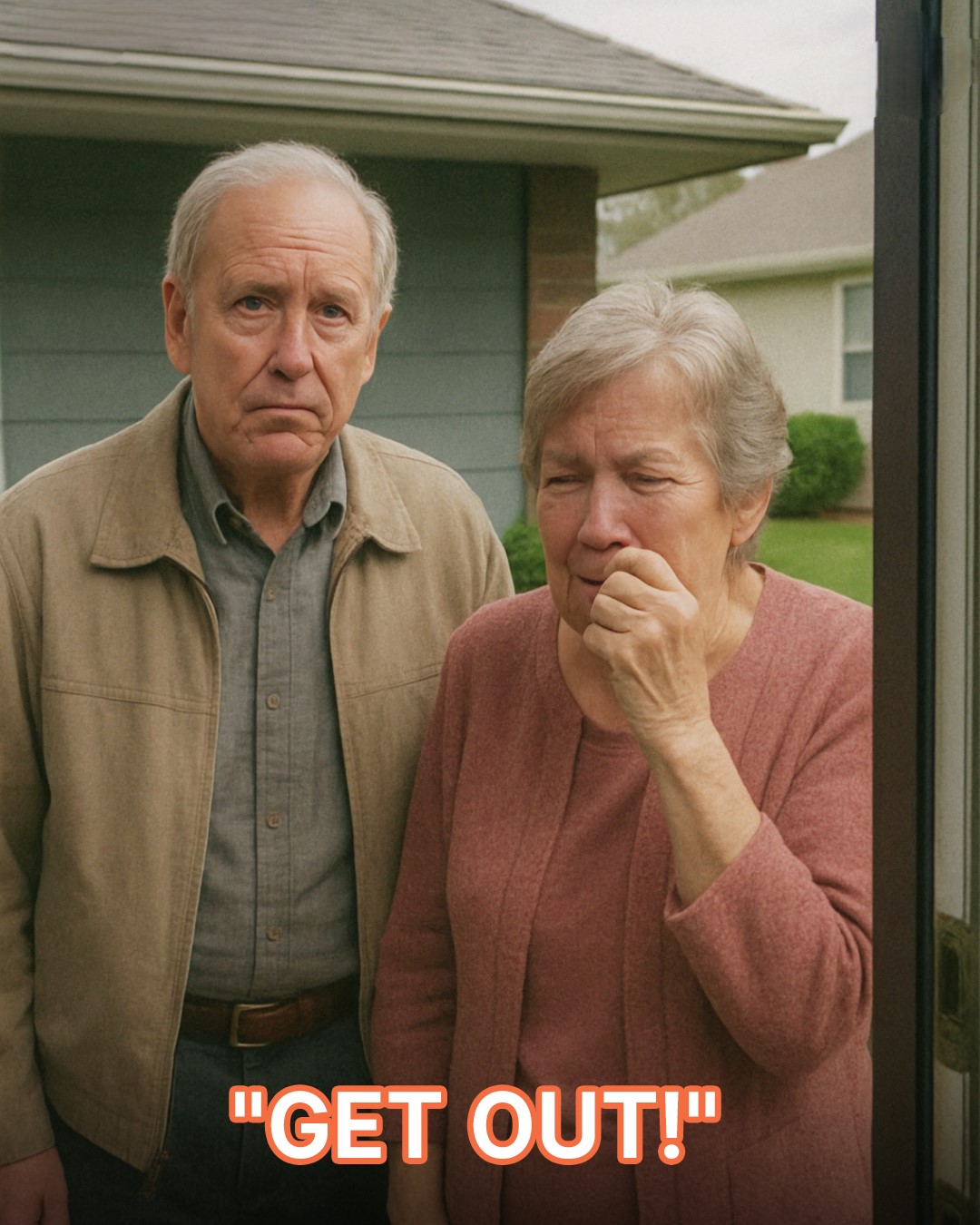Every evening at six, the gentle chime of the mantel clock signaled the start of a cherished ritual. Barney would fold up his newspaper and call softly, “Mimi? It’s almost time.” Mimi—short for Margaret—would appear, smoothing her lavender blouse and adjusting her silver curls. Even in her seventies, she moved with quiet elegance, arthritis no match for her determination.
For nearly forty years, they’d lived on Silver Oak Street, in a modest home filled with blooming flowers and bird feeders. But no matter how bright the garden, their hearts had never fully healed from losing their only son, Adam, in a plane crash twenty years ago. The night before he left, they’d cooked his favorite meal—roast chicken—and after that night, the dining table remained untouched.
In time, Mimi proposed a new tradition to keep the silence at bay. Each evening, they’d visit a neighbor for dinner, bringing a small handmade gift—a candle, a loaf of bread, a scarf. It started as a distraction, but over the years, it became the rhythm of their lives and the soul of the neighborhood.
That night, they were headed to Mrs. Chen’s for dumplings. Barney, as usual, had forgotten the gift, and Mimi retrieved it with a patient smile. They laughed as they walked out hand in hand. Passing the old Wilson house, now sold, Barney pointed. “Looks like we’ve got new neighbors.”
Mimi’s face lit up. “Let’s welcome them tomorrow. I’ll finish that little blue cap for the baby.”
But the next day brought an unexpected blow.
When they knocked at the door, a little girl answered excitedly. “There are old people here!” Her mother, Rebecca, appeared moments later, clearly overwhelmed by unpacked boxes, young kids, and exhaustion. She forced a smile, but her nerves were frayed. Mimi offered the blue cap, and the child beamed.
Rebecca, however, snapped. “We’re not looking for charity. And we’re not hosting strangers for dinner. This is just… weird.”
Mimi shrank back, stunned. “We didn’t mean to intrude.”
Barney took her hand and gently led her away. That night, she wept quietly in his arms, the harsh rejection cutting deeper than they expected.
Days later, everything changed.
Barney was outside tending his bird feeder when he saw the little girl, Emma, wander into the street. A delivery truck barreled toward her. Without a second thought, Barney dashed into the road, sweeping her out of harm’s way just in time.
Rebecca came running, heart in her throat. When she saw Barney cradling her daughter, she collapsed in relief. “You saved her,” she whispered. “And I treated you so terribly.”
Back home, shaken and grateful, she extended an invitation. “Please… have dinner with us tonight.”
That evening, Barney and Mimi arrived with a peace lily. “They bring harmony,” Barney said with a smile.
The meal wasn’t perfect—the chicken was dry, and there was no bread—but the air was filled with warmth and conversation. For the first time in years, the table was alive again.
They shared Adam’s story, how their dinner visits had helped ease the grief. “The silence was too heavy,” Mimi said softly. “This helped us survive it.”
Emma piped up shyly. “Can I keep the blue cap now?”
Mimi, teary-eyed, nodded. “Of course, sweetheart.”
From then on, Barney and Mimi became part of the family. They visited weekly, helped with homework, offered advice, and filled a role no one had asked for—but everyone came to treasure. Mimi taught Emma to crochet, and Barney helped Lily overcome her fear of dogs. They weren’t just neighbors anymore—they were family.
Years passed. Barney passed away peacefully one night. Mimi followed not long after.
The neighborhood mourned.
Every fall, Rebecca and her family visit the cemetery on the hill. They bring roast chicken—Adam’s favorite—and sit between the graves. They share stories, laugh, and cry, keeping Barney and Mimi’s memory alive.
And often, as they leave, two crows settle near the picnic basket, nibbling gently. Rebecca always stops to smile. In her heart, she knows—Barney and Mimi are still there, together, sharing dinner once more.
